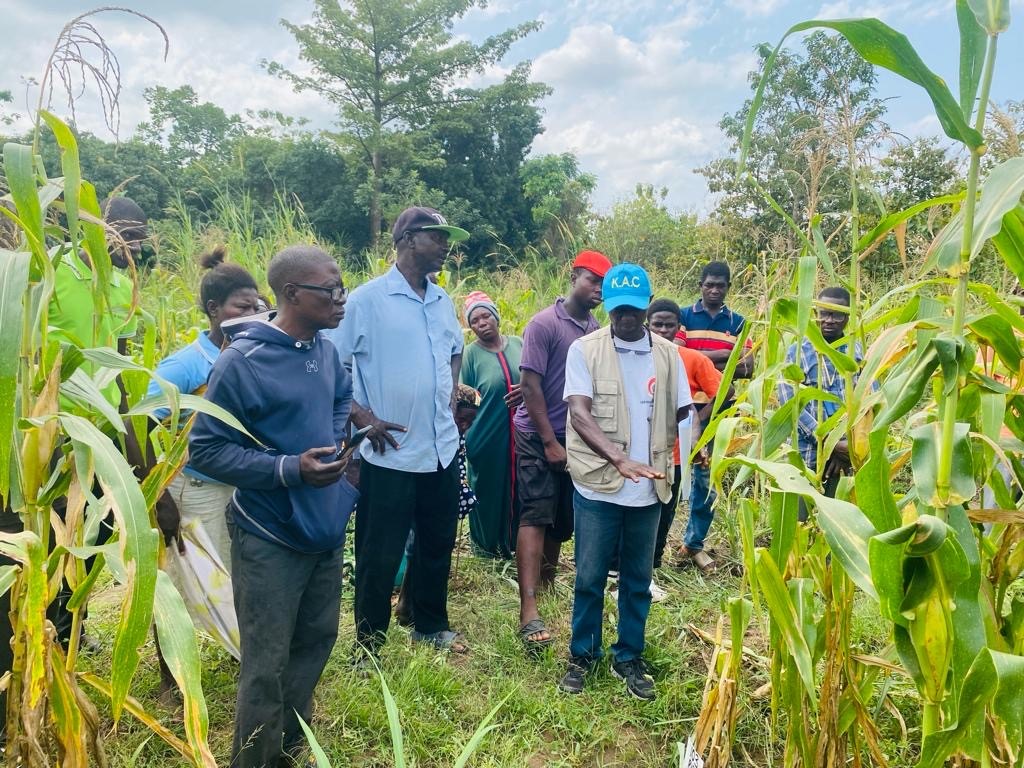Crop researchers are working to develop new techniques to help reduce the use of synthetic insecticides to control the population of fall armyworm on maize fields.
To this end, crop scientists and researchers from the Council for Scientific and Industrial Research (CSIR) -Crops Research Institute (CRI), are carrying out integrated pest management approaches to help to manage the fall armyworm with focus on the use of biological agents to suppress their population.
Dr. Yaw Danso, a Senior Research Scientist working on Nematodes at CSIR-CRI, told the Ghana News Agency at a farmers’ field day at Ejura that the fall armyworm was the most devastating invasive insect recorded in Ghana, which had caused massive losses to maize and other crops production.
According to him, the use of synthetic insecticides had an inherent detrimental effect on the environment, human beings and non-targets organisms.
There is also evidence that persistent use of insecticides hastens pest building resistance, thereby rendering insecticides ineffective over time.
The farmers’ field day was therefore, to update farmers on the research institute’s trial fields, where biological agents, farmer’s synthetic insecticides and control methods had been used to grow maize in plots.
The farmers’ field day was therefore, to update farmers on the research institute’s trial fields, where biological agents, farmer’s synthetic insecticides and control methods had been used to grow maize in plots.
He said these laboratory-bred agents when tested well on fields would be packaged in the next few years for farmers who were the main stakeholders to have access to apply on crop fields.
Some of the farmers sharing their experiences with the GNA after visiting the various plots, said the invasion of the fall armyworms a few years ago had a great toll on maize yields, incurring higher cost on insecticide applications.
Madam Christiana Nasara, a farmer, commended efforts by the researchers and the Government in helping to reduce infestation levels.
Commenting on her observations on the field, she noted that the plots with the biological control had the potential of yielding higher since it had not been infested by the fall armyworms.
Fuseini Seidu, a maize farmer also said although infestation levels had been low in the last 18 months, researchers must expedite actions in making available the biological agents to farmers to bring relief with the ultimate aim of maximizing maize yields.




